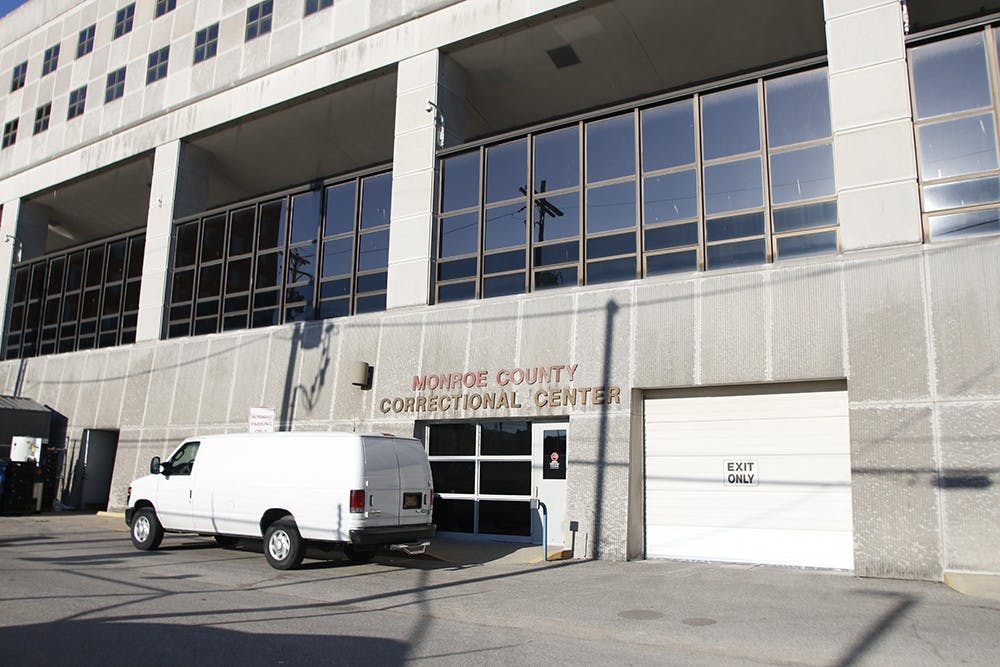The United States currently has the largest number of prisoners in the world, with 2.1 million people locked up.
Unfortunately, America has not only been notorious for the high concentration of inmates, but also the degrading treatment of them. Women specifically have been treated in poorly.
Prisons need to treat inmates like the human beings they are.
Trading sexual favors for makeshift beauty supplies is not the only way women are mistreated in these corrupt prison systems. Women often struggle to have access to basic health necessities such as feminine hygiene products.
Rep. Richard Pickett, R-Maine voted against providing incarcerated women free access to pads and tampons on March 15. His reasoning makes that already awful decision even worse.
“Quite frankly, and I don’t mean this in any disrespect, the jail system and correctional systems were never meant to be a country club,” he said, according to Bangor Daily News.
He said this as if menstrual cycles are a choice,and feminine products are too luxury of an item for women in jail.
Although a 2017 policy gives women free access to feminine products in federal prisons, this is not the case for state prisons and county jails.
Feminine hygiene products are a human right and should be treated as such. It is not only unsanitary but also shameful to not provide an adequate supply of these products to inmates.
If you thought they were expensive at convenience stores, the prices of pads and tampons in prisons is absolutely outrageous. In federal prison, two tampons could cost $5.55. Some prisons limit the amount women are able to buy. Don’t we all just love capitalism?
If the institution does not provide feminine hygiene products inmates often create tampons out of toilet paper, notebook paper or maxi pads. This is clearly dangerous and poses serious health risks on inmates.
Due to poor quality and minimal protection, sometimes inmates have to ask guards for permission to have access to more. This personal decision suddenly is placed in the hands of guards, who are overwhelmingly men.
Inmates are hindered from making any reasonable amount of money while incarcerated. This perpetuates the problem. The fact that some women have to decide between making a call to their children and buying one extra tampon is morally unacceptable.
It can’t get much worse right? Wrong.
The woes of female prisoners somehow get even worse. As unbelievable as it may sound, many institutions shackle inmate mothers while they are in labor. These women are handcuffed while they are transported to hospitals to give birth.
This creates obvious constraint and discomfort for the mother, which in turn put the baby at risk. Six states, including Indiana, have no policies that banthe shackling of female inmates in labor.
According to The American Congress of Obstetricians and Gynecologists, “Physical restraints interfere with the ability of health care providers to safely practice medicine by reducing their ability to assess and evaluate the mother and the fetus and making labor and delivery more difficult.”
There is no reason a woman should be physically restrained during labor. A woman, inmate or not, is only going to be concerned of the health of her and the baby.
A country as developed as America should not treat inmates in such dehumanizing ways. It is disgraceful that women still experience these mistreatments so consistently.
We need to create more policies that protect women in prison and elect officials who care about treating inmates in less degrading ways.
Prisons and jails need to provide basic human rights to all prisoners.
A mother should not struggle during labor because she has shackles on her arms.
Notebook paper should never be used as a replacement for a tampon.
And no, supplying basic necessities to women does not make a jail equivalent to a country club.






